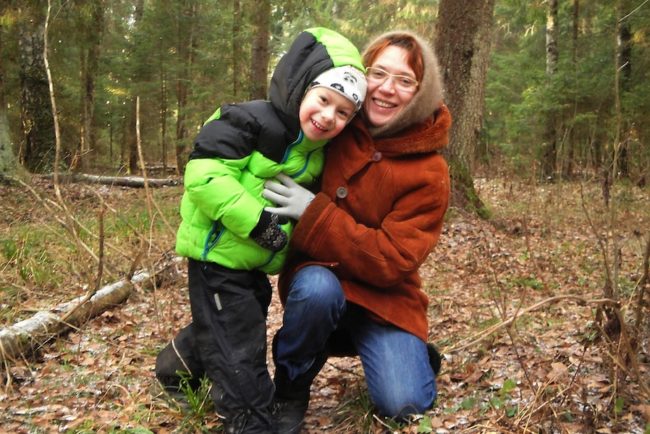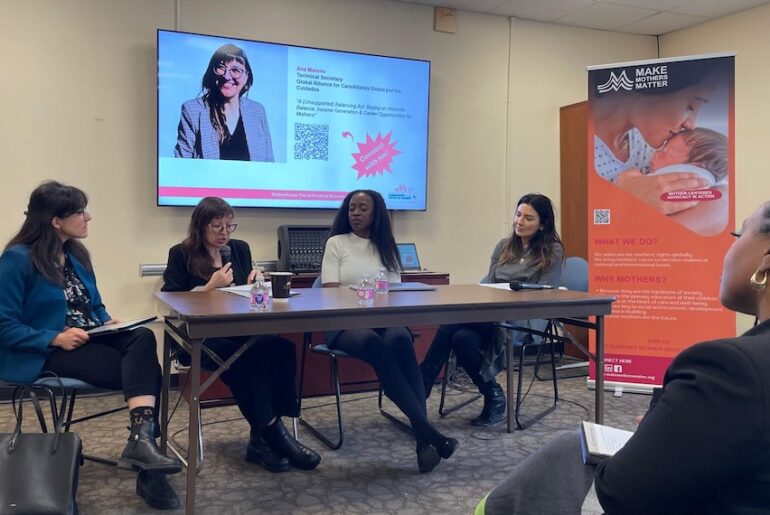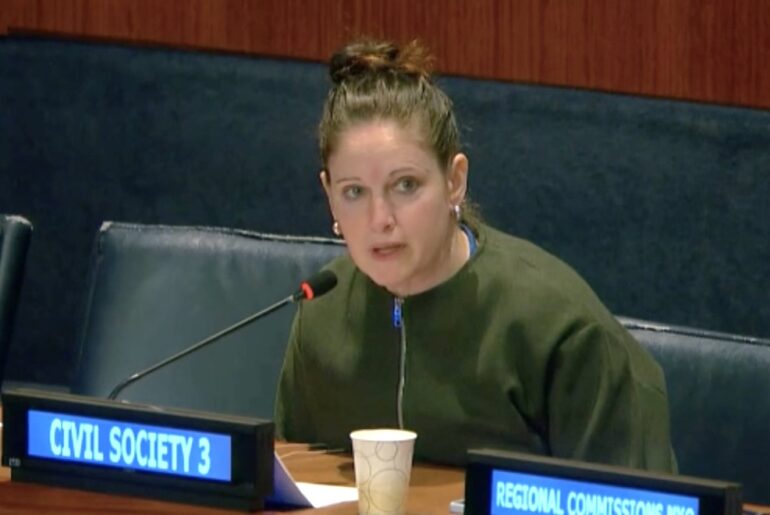Building back better by transforming our economic system to prioritize wellbeing – with care and education at its heart
21.01.21
UN Geneva, HRC intersessional meeting - Read below MMM's contribution to the discussion on “Building Back Better: Integrating Human Rights in Sustainable and Resilient Recovery from the COVID-19 pandemic’

The Covid-19 crisis and its cascade of consequences has shown what really matters: It has all been about care and education, and the people performing these duties, whether paid or unpaid. It has laid bare the critical role of care, not only healthcare, but also unpaid care work, i.e. the work that is carried out on a daily basis within families to raise and educate children and take care of each family member, each dependent relative.
This work, which is taken for granted, remains invisible and unaccounted for in our economic system, even though it is essential for the proper functioning of our economies and our societies, both in the short and long term.
At the global level 3⁄4 of this work is done by women, an inequitable distribution which is at the heart of gender inequalities. Even in developed countries where women’s rights are most advanced, unpaid family care work and responsibility remain one of the main obstacles to a woman’s economic emancipation, especially when they have children. Motherhood often carries a heavy cost for mothers: the care gap results in a labour force participation gap, pay and pension gaps, not to mention the sticky floor and the glass ceiling when it comes to promotion at decision making level positions. And the Covid-19 crisis has only exacerbated this situation.
Most policies which have sought to address this issue have so far followed the so-called “3 Rs framework”, which also underlies target 5.4 of the 2030 Agenda:
- Recognition: by measuring unpaid care work to make it visible
- Redistribution: by promoting a better distribution of unpaid care work 1) between men and women (e.g. through paternity leave, parental leave, promotion of the role of the father), and 2) between families and the rest of society (e.g. support for parents, policies for reconciling work and family, promotion of care as a collective responsibility).
- Reduction: by developing physical and social infrastructures and services aimed at reducing the workload of families, women in particular (access to water and energy, care and childcare structures and services, communication services, etc.).
However, while all these measures are absolutely necessary and make it possible to improve the situation, they remain insufficient: although in a growing number of countries women are achieving the same level of education as men – or even surpassing it – no country in the world today has achieved gender equality in the economic sphere and progress has stalled or even regressed in many countries.
This is a crisis of care, which is not about to be resolved, especially in view of population ageing, and in the context of Covid-19 and its economic devastation – which disproportionately affect women.
To ‘build back better’, it is therefore necessary to take a broader perspective and consider more systemic changes.
One of the fundamental problems is our current economic system, which is both completely blind to and dependent on unpaid care work.
The same could be said of the environment: our economic system is blind to environmental destruction, but at the same time it completely depends on it.
The care and the environmental crisis converge to denounce an economic system that exploits the unpaid work of women, the so-called “reproductive” work of mothers in particular, and the environment.
The flagship indicator of the current system, GDP, is also too often wrongly equated with an indicator of progress or even wellbeing. However, GDP includes financial speculation, drug trafficking, health expenditure (the more we pollute, the more it increases), arms sales (wars generate GDP), etc. In addition, it does not account for the growing inequalities that are observed in most countries and which particularly affect women, or for all the social problems that arise from them, which also have a cost – and increase GDP.
‘Building back better’ must start with repurposing our economic system to serve the wellbeing of people and the planet, and place human rights as well as care and education at its heart.
At MMM, our main objective is to ensure that care and education, and the role of mothers and families, is at the heart of this new economic system. We believe all forms of care and education work, whether paid or unpaid, should be recognised and properly valued. They must also be seen as an investment (in human capital), not as expenses to be minimised.
It is therefore time to build a new economic system whose primary objective is no longer profit maximisation and GDP growth, but the wellbeing of people and the planet. In other words, it is time that the economy serves people and the environment, not the other way round.
The 3rd intersessional meeting of the UN Human Rights Council on human rights and the 2030 Agenda took place on 14 January, under the theme “Building back better: Integrating human rights in sustainable and resilient recovery from the COVID-19 pandemic”. MMM contributed this statement to the discussion.
Time Poverty and the Motherhood Penalty
Unveiling Economic and Social Injustices
09.07.24
Mothers play an essential role in families by ensuring their loved ones are nourished, educated, and healthy, but their unpaid care work often leads to economic and social injustices, known
Envisioning care as a common thread to global crises
29.07.24
UN New York - Our virtual HLPF side-event brought together experts to shed light on how the various global crises we face (in particular climate change and other environmental crises,
We call for multi-stakeholder approach to recognise and support unpaid care work
21.07.24
UN New York - Participating in the meeting of the UN Economic and Social Council (ECOSOC) on care and support systems, MMM reaffirmed the principle of co-responsibility, which should underpin








